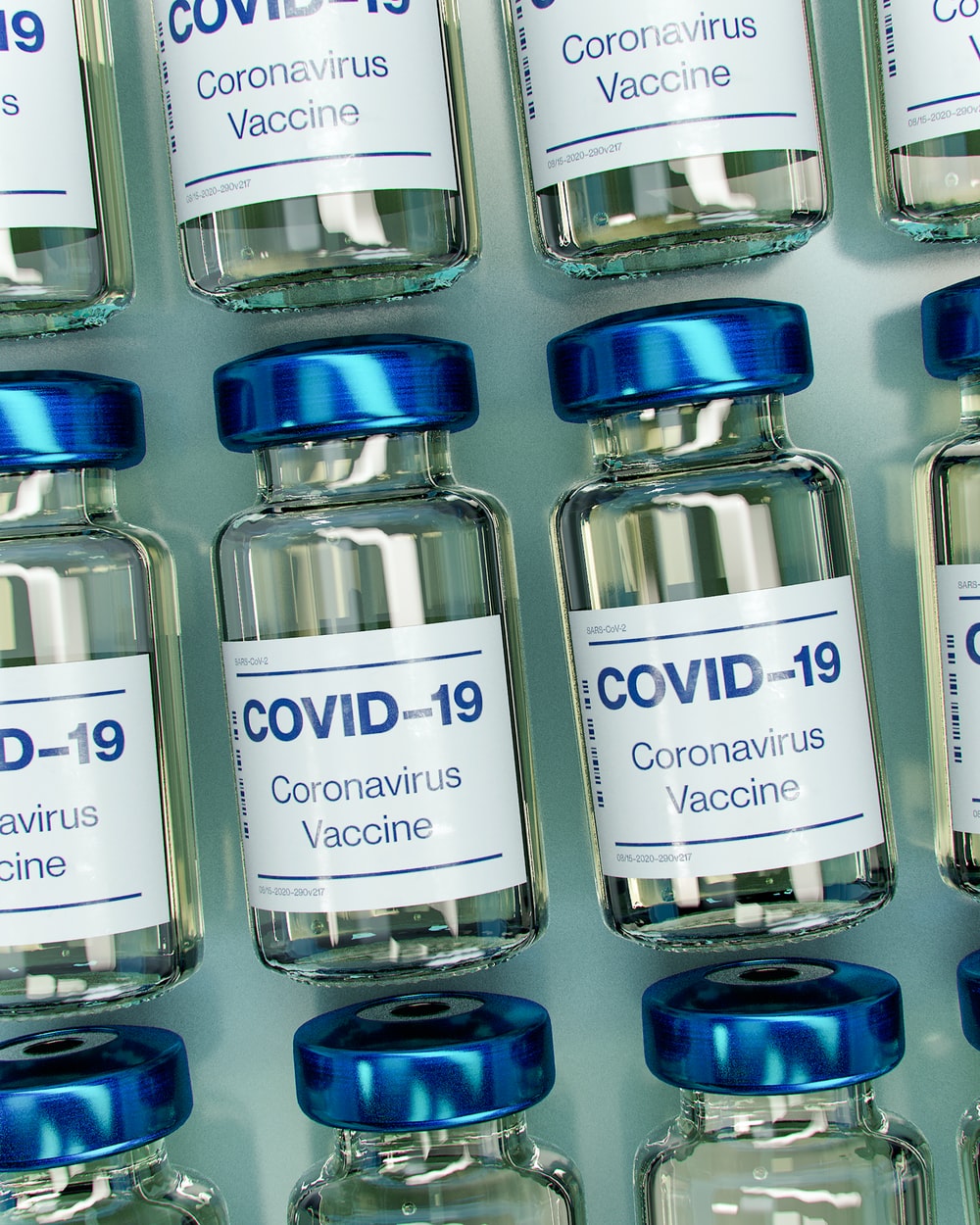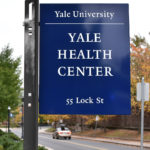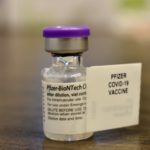Yale working to deal with students who get a non-FDA-authorized vaccine
Because the pandemic has scattered Yale students across the globe, not everyone has access to the same COVID-19 vaccines. But with Yale's recent mandate announcement and requirement that students be immunized with U.S.-approved shots for the fall, what could this mean for international students in countries that are only administering AstraZeneca or other non-FDA-authorized vaccines?

Unsplash
After announcing on April 19 that all students must receive a vaccine against COVID-19 come fall, the University is working through how to best protect international students who might only have access to vaccines the FDA has not authorized.
Dean of Yale college Marvin Chun sent an email to the undergraduate student body on Apr. 29 announcing that “all students must be fully vaccinated against COVID-19 by the time they arrive.” According to the email, those who are unable to do so will have to come to campus early to be immunized before the term begins. The University is currently only accepting the Pfizer, Moderna and Johnson and Johnson vaccines as fulfillment of the vaccine requirement, according to a Yale Health FAQ page. They are currently the only three vaccines with an U.S. FDA emergency use authorization. But for students in countries that have authorized the AstraZeneca, Novavax or Sinopharm-Beijing vaccines, there are lingering questions as to how to proceed.
“If you are unable to be vaccinated in time, you will need to come to campus early to quarantine and fulfill other public health requirements,” Chun wrote in the campus-wide email. “If you have not received a medical or religious exemption, and are not already vaccinated, you will be vaccinated when you arrive.”
Yale Health leaders have urged all students to get vaccinated as soon as possible with whatever vaccine is available to them. The University will later determine whether to revaccinate students with one of the FDA-authorized formulations when they return to campus. Yale will vaccinate any student in the fall for free, and they will have to be vaccinated to participate in in-person programs.
Richard Martinello, the Yale New Haven Health system medical director of infection prevention and one of the members of the University’s public health committee, told the News that discussions are ongoing on how to best accommodate students coming from countries where currently FDA-authorized shots are not being administered. Because the World Health Organization has also been making recommendations on the safety and effectiveness of vaccines being used globally, he said current requirements could change in accordance to these international assessments as well.
“We are strongly recommending that people be vaccinated as soon as [the] vaccine is available to them and not delay,” Jennifer McCarthy, chief medical officer for Yale Health, wrote in an email to the News. “Vaccination offers individual and societal protection from the consequences of continued transmission of the virus.”
The Yale Health FAQ page states that re-vaccination with two different vaccines is not recommended at this time, but that if CDC guidance changes it is possible students who received international vaccines will have to be re-vaccinated in the fall with an FDA-authorized vaccine. Yale Health will set up special vaccination clinics at no cost to these students. Paul Genecin, chief executive officer of Yale Health, told the News that guidance is “evolving” as the CDC and FDA make additional recommendations.
The FAQ encourages that students still submit their COVID-19 vaccination record to the University for COVID-19 monitoring across the Yale community.
Associate professor of epidemiology Luke Davis said that it is understandable that only FDA-authorized vaccines fulfill Yale’s mandate. The challenge is that additional vaccines, including the AstraZeneca vaccine, might be authorized in the coming months, he said.
“Whatever Yale’s policy is in the future, that should not change the widely accepted public health recommendation that students should get whatever vaccine is safe and effective and accessible to them wherever they are as soon as possible,” Davis told the News. “If an additional immunization with a different type of vaccine is needed to meet Yale’s policy in the future, there’s no reason that we know of at this time why that wouldn’t be safe and effective, provided the vaccines are separated by a few weeks to avoid any direct interactions.”
Associate Athletic Director of Strategic Communications Mike Gambardella did not elaborate on Yale athletic-specific policies for international student-athletes.
“Any information on Yale policies regarding COVID and vaccines would need to be provided by Yale Health,” Gambardella said. “We continue to follow their instructions and guidelines.”
Full vaccination is defined as two weeks after the second Pfizer or Moderna dose or after the single-dose Johnson and Johnson vaccine. Yale Health recommends that students be vaccinated before coming to campus, as unvaccinated or partially vaccinated students will be required to quarantine on arrival, participate in required testing and potentially have other limitations on activities until fully vaccinated.
Davis said that there is only a small short-term increase in immunity after receiving the first versus the second Moderna vaccine. It is important for people to receive both doses in a two-dose vaccine series, but, in Davis’ opinion, students should potentially be able to participate in in-person activities two weeks after the first dose, instead of waiting six weeks.
Inci Yildirim, associate professor of pediatrics and Yale’s principal investigator for the Moderna vaccine trials for children between the ages six months and 12 years old, explained that there are fundamental differences between the AstraZeneca vaccine, compared to the Pfizer and Moderna vaccines.
The AstraZeneca vaccine uses an inactivated adenovirus vector to shuttle the coronavirus spike protein’s genetic information into human cells. This is what allows the proteins to be produced in bulk by the cell’s machinery, giving the immune system a chance to learn what they look like and how to fend off potential COVID-19 infections.
But although this vector is completely inactivated and thus unable to cause neither adenoviral infection or coronavirus infection, it has surface proteins that can be recognized by the body, Yildirim said. This brings into question whether potential booster shots for AstraZeneca vaccines, which some scientists are arguing might be necessary to combat emerging variants, would be effective. Even though adenovirus vectors are considered one of the safest and most effective vaccine vectors, immunity that develops overtime with repeated exposure to the them might make the booster shot less effective, she said.
“It is a real concern, because we do not know how long the immunity against SARS-CoV-2 infection will stay with us –– whether it is due to natural infection or vaccine-induced protection,” Yildirim said.
The Moderna and Pfizer vaccines, on the other hand, are mRNA-based and use a lipid nanoparticle to deliver the genetic material to cells, according to Yildirim. This nanoparticle acts like a vehicle in a similar way to the adenovirus vector, and is completely degraded after it enters the cell. This makes it so the body’s immune system has no way of memorizing what the nanoparticle looks like, thus guaranteeing a greater chance of success for the booster.
With regards to cross-vaccination with different brands of COVID-19 shots, Yildirim said that there have not yet been any formal studies looking into what affects this might have. However, some countries in Europe have been forced to do this due to a recent safety pause and supply constraints involving the administration of AstraZeneca vaccines.
“Some people already had received the vaccine but the second dose was not available because the decision about the vaccine safety was not there yet,” Yildirim said. “These countries decided not to wait for that decision, and they said we’ll do the second dose with other vaccines, including Pfizer and Moderna vaccines.”
The Oxford-AstraZeneca vaccine is being used in 135 countries, according to the New York Times’ world coronavirus tracker.










